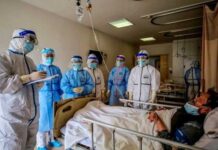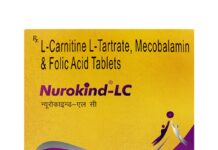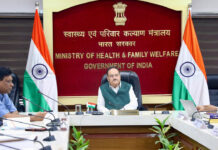Vidya Sethuraman
India Post News Service
As the Department of Health Care Services (DHCS) continues to transform Medi-Cal, the state is addressing behavioral health needs, like mental health care and substance use disorder services, through health care. Medi-Cal, California’s Medicaid program, provides coverage for one in three — or 15 million — Californians, and now includes expanded services to meet their health care needs well beyond the doctor’s office. At the briefing on May 16, DHCS leaders and community health care providers shared how Medi-Cal is helping Californians needing mental health and substance use disorder treatment lead healthier lives. This is the third in a series of briefings exploring the ongoing Medi-Cal transformation to create a whole-person health system for all Californians.
Autumn Boylan, Deputy Director, Office of Strategic Partnerships, California Department of Health Care Services said half of all cases of diagnosable mental illness over the lifespan emerge among our youth by the age of 14. It is vitally important to ensure preventative services and early interventions when symptoms of mental health conditions or substance use disorders begin to emerge, as youth develop. She mentioned that in 2021 the University of California, Los Angeles (UCLA) published a study indicating that in previous years, a third of California youth had experienced significant psychological distress. Today’s youth have 24/7 access to information in the palm of their hands through their phones.” Next, she said they engage in healthy and unhealthy interactions through social media. Governor Newsom’s children’s mental health master plan addresses this youth mental health crisis, and one of the ways is through the Youth Behavioral Health Initiative. She said they work closely with county offices of education and school districts to strengthen the network of care and support, both in K-12 schools, community colleges, and the University of California.
Paula Wilhelm, Interim Deputy Director, Behavioral Health, California Department of Health Care Services said they have been working hard to transform the mental health care and substance use services they refer to today as behavioral health. That’s why we want our MediCal members to know that there is help if they are experiencing postpartum depression or dealing with anxiety and stress due to school or work problems; or if they suffer from drug or alcohol addiction. She noted that DHCS works with managed care plans and county behavioral health agencies to provide a wide range of behavioral health services for MediCal members. These include prevention and wellness, screening and assessment of mental health needs, substance use, and a variety of outpatient and community-based treatment services, including individual, group, and family therapy. This includes treatment for opioid use and harm reduction tools like naloxone, which can reverse overdoses, and fentanyl test strips. She emphasized that they want to improve the quality of health care and create more equitable and person-centered delivery.
Jennifer Oliphant, LCSW, Chekws: Hope for Tomorrow Program Director at Two Feathers Native American Family Services said they have a clinical program that provides mental health and substance abuse services to youth between the ages of 10 and 24; and as much as we can, we include families. We really felt like we needed to really integrate all of our programming to be more effective and really engage our community. We are planning a youth leadership development program that is very exciting to engage teenagers in more creative ways.







